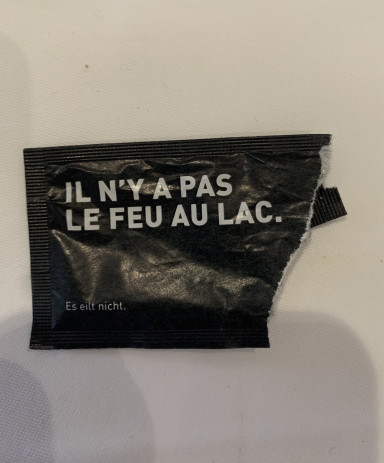

Stephan
Zilkens
,
Zilkens' News Blog 47 2024
It seems that art and politics are caught up in a kind of pulsating attraction and repulsion, and not only in Germany. Italy has a minister of culture, where Germany has a commissioner for art and media, because culture is a matter for the federal states. Alessandro Gini, as the new Italian minister is called, has just cancelled the contracts of four museum directors who are not from Italy. He also seems to have lacked style – the stupid foreigners probably found out by email and through the press. One cannot shake of the impression that the Meloni government is more concerned with the redistribution of funds than with a common European idea when it comes to Europe.
In Germany, Cologne can be seen as a microcosm for the difficulties in the country: thanks to an administration that ballooned from 17,500 to 24,000 employees in seven years under the first female mayor, the city no longer has much – but above all, it has no money. And since the ingenious local traffic policy of the Green Party head of the traffic department has now also hit the Ford plant, business tax revenues will fall. The city treasurer has now put forward a proposal for restructuring the budget with her department heads. In addition to the abolition of the leased cars purchased for the honorary mayors (the department heads may keep their company cars), cultural institutions are also to be massively cut. The exhibition space of the Schnütgen and Rautenstrauch-Joest Museums is now to be used as a presentation space for the Romano-Germanic Museum. This saves around €120,000 in rent at the RGM's current location. The company cars cost around €40,000. These and other proposed cuts show four things: 1. the administration controls the democratic bodies and not the other way around, 2. the whole thing is a drop in the ocean, 3. the elected representatives on the council are now only third-rate figures without format (despite a few desperate exceptions), and 4. culture has no lobby. Final proof? After the thefts from the Museum of East Asian Art (one of the top addresses in Europe), the insurers paid almost €1.3 million in compensation, although the city could probably have been made to suffer by citing a few violations of obligations. After all, only the third theft attempt was successful. The treasurer is now distributing the money in the debt bag instead of making it available to the museum for new purchases. That may be legal, but it's still a shame for culture. However, the administration does not come up with the idea of reducing the number of employees to 4,000 again and pushing ahead with the digitisation of the city administration. This alone would save around EUR 200,000,000.00 per year in salaries. Not even counting the additional costs for equipment at the workplaces. And every wage increase demanded by the trade unions has a proportionally much smaller effect. This would leave enough money not only for social services but also for cultural education, which is lacking not only in this city administration.
Stefan Kobel has put together a lot – please read on at his site
We wish you a great week full of pleasant encounters with art.
Stephan Zilkens and the team at Zilkens Fine Art Insurance Broker GmbH in Solothurn and Cologne
automatically translated